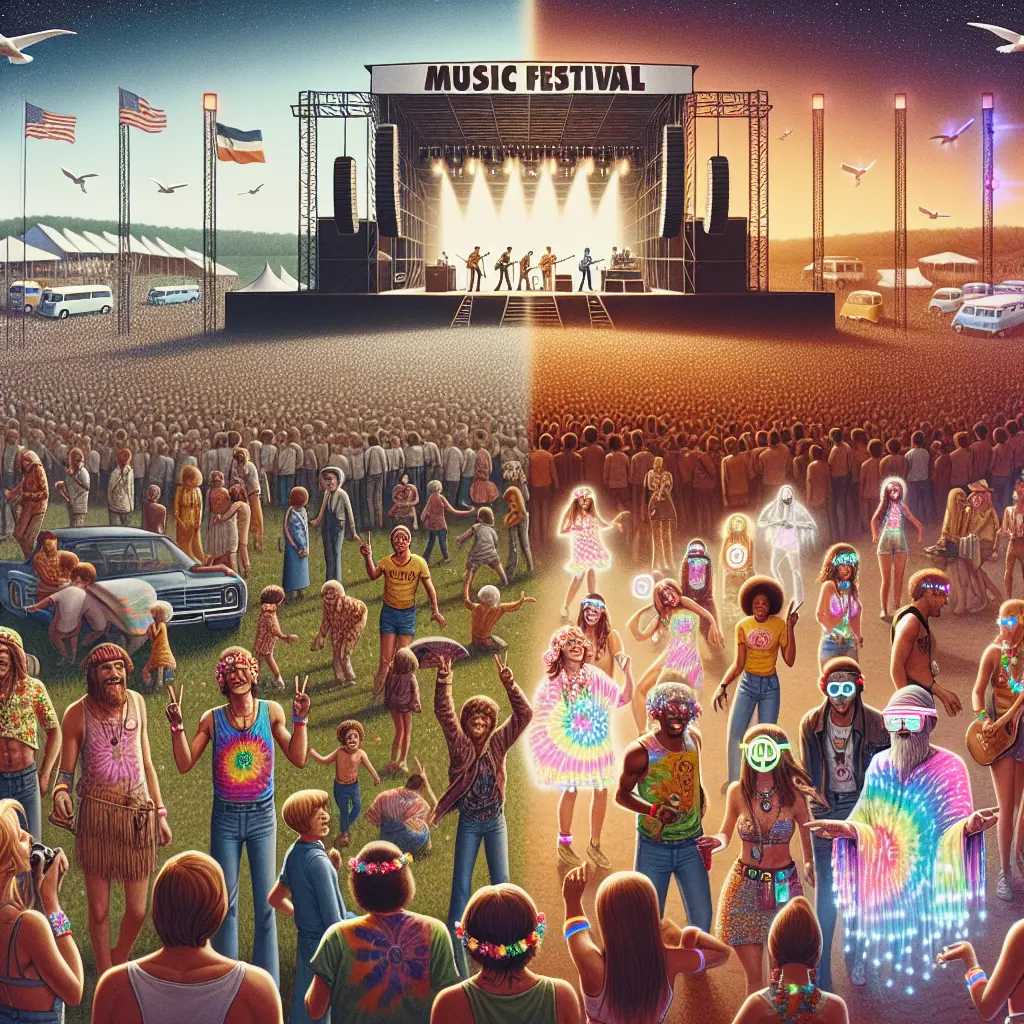
From the communal gatherings of the 1960s epitomized by the legendary Woodstock festival to today’s highly digitized and diverse array of music events, the evolution of music festivals reflects broader shifts in technology, culture, and society. In this exploration of music festivals' history, we trace how these events have transformed from simple, live music trends to multifaceted cultural phenomena that leverage cutting-edge technology to enhance the audience experience.
The Roots: Woodstock and the Birth of Music Festival Culture
The Woodstock festival, held in 1969, is often considered the benchmark for the modern music festival. It wasn't just about the music; it was a confluence of social movements, a melting pot of ideas, and a statement of peace and love. Woodstock showed the world how music could bring people together in unprecedented numbers, creating a template for future gatherings (Source: History.com).
Technology Integration: The Shift Towards Digital Age Music Events
Fast forward to the digital age, and you'll notice how significantly technology has reshaped the landscape. Today’s festivals employ advanced sound systems, stage lighting, and special effects that far surpass what was available at Woodstock. The impact of technology on music festivals is profound, enhancing not just the auditory and visual experience but also the way these festivals are organized and attended. RFID wristbands for entry, cashless payments, and apps for live updates are now the norm at events like Coachella and Glastonbury (Source: Eventbrite).
Live Music Trends and Interdisciplinary Inclusions
Contemporary music festivals have expanded their horizons beyond just music. They now incorporate various forms of entertainment — a trend that is vividly illustrated by events such as Balloon Glow in Manitowoc. Scheduled for August 16, 2024, this festival promises an eclectic mix including water ski shows, aerial dancers, and musical performances, all set against a backdrop of vibrant hot air balloons (Source: Local Event Organizers).
Cultural and Social Evolution
As festivals have evolved, so too has their cultural significance. They serve as platforms for more than just music; they are venues for activism, social justice, and community building. This shift mirrors changes in societal values over the decades, emphasizing inclusivity and diversity.
The Role of Media and Celebrity Influences
Media coverage and celebrity endorsements have also played crucial roles in the evolution of music festivals. For instance, recent updates on public figures like Neve Campbell returning for Scream 7 or controversies surrounding the use of Celine Dion’s songs at political rallies highlight how celebrity actions and media attention can influence public perceptions and indirectly affect festival culture (Sources: Entertainment Weekly; CNN).
Technological Disruptions: Streaming and Virtual Realities
The introduction of live streaming services like Roku has drastically changed how audiences consume festival performances. The Roku Streaming Stick 4K, a favorite during Amazon Prime Day sales, allows users to stream live performances from the comfort of their homes, thus democratizing access to these cultural events (Source: TechRadar).
Moreover, attempts to blend digital experiences with live events can be seen in Disney’s partnership with Epic Games for a Fortnite event at D23. Despite facing logistical challenges, such initiatives signify a move towards integrating virtual environments with traditional festival formats (Source: The Verge).
Labor in the Digital Age: The Intersection with Gaming
The intersection of music festivals with other digital entertainment forms is increasingly evident. The strike by video game actors over concerns about AI use in the industry underlines the growing dialogue about technology's role and ethics in entertainment — a conversation that also impacts music festival productions (Source: Variety).
Looking Ahead: The Future of Music Festivals
As we look towards the future, the ongoing evolution of music festivals seems intertwined with advancements in technology and shifts in cultural narratives. The potential for further integration of AI, virtual reality, and even more immersive digital experiences suggests that the next few decades could see transformations as significant as those from Woodstock to today.
Conclusion
In examining the evolution from Woodstock to digital age music events, it is clear that while the core essence of gathering and celebrating through music remains unchanged, nearly every other aspect has evolved. The changes in music festivals over time reflect broader technological advancements and shifts in societal values.
Festivals today are more than just musical gatherings; they are complex cultural phenomena that encapsulate the spirit of their times. As we continue to navigate these changes, one thing remains certain: music festivals will continue to be a vital part of our cultural tapestry.
With peace, love, and music,
Nora Sheffield